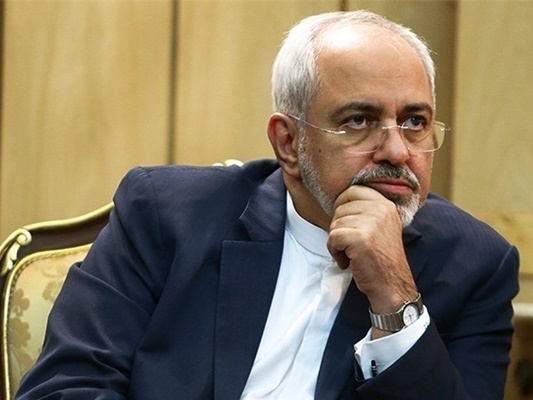Iranian Foreign Minister Mohammad Javad Zarif maintains that although senior Turkish officials have levelled some accusations against Tehran over its regional policies, Russia and Iran still insist that Turkey should take part in Astana talks [in Kazakhstan] on Syria, as they, particularly Iran, believe that all regional countries are required to work towards establishing peace and ending conflicts in the region and that the trilateral cooperation between Tehran, Moscow and Ankara has so far proved successful in bringing down the number of skirmishes in Syria.
Speaking in a Farsi interview with ISNA, Zarif said, “As long as this trend of cooperation proves to be helpful in alleviating the humanitarian crises in Syria, we will insist that it should continue.”
He stressed that Iran still maintains that only a political solution would lead to the resolution of Syria’s crisis and that the regional countries are required to facilitate the process of achieving this solution, adding Syrian people are the ones to make the final decision about their country’s crisis.
“We cannot impose anything on them.”
Any Crisis-Ending Strategy Is Welcome
Asked about whether holding negotiations with Syrian militant groups in the first and second rounds of Astana talks – which showed that Iran has officially recognized these groups – would lead to the organisation of separate meetings between Tehran and them, the Iranian foreign minister noted that Iran seeks to employ any method or strategy which contributes to the settling of the conflicts in Syria and creation of national unity among Syrians.
He said of course, Iran has red-lines for holding negotiations with those groups which support terrorism and extremism to pursue their own political objectives, adding however, on the whole, Tehran is willing to do its utmost to play a positive role in overcoming the Syrian crisis.
Domestic Coordination on Syria
In response to a question on whether the involvement of several organizations and bodies in Iran in making decisions about how to react to and tackle the Syrian crisis creates problems in the process of decision-making about the regional country, Zarif said, “Interestingly, we are not faced with such a problem for taking decisions about the Syrian issue in the country. There are not many decision-making organizations and bodies in Iran regarding the crisis-hit state. Decisions about Syria and the strategy to address the country’s crisis are made and mapped out, respectively, in Iran’s Supreme National Security Council.”
Asked whether making decisions about the Syrian crisis is among the privileges of the Ministry of Foreign Affairs, Zarif noted that since a number of issues has different dimensions, decisions about them are made in the Supreme National Security Council.
After coming to a decision in the council, each national body and organization undertakes the responsibility handed over to it [by the Council], he added.
“Among the reasons why the Council was set up was that it should be in charge of making the final decisions on the issues the tackling of which requires coordination between different domestic bodies and organizations, such as those pertaining to regional countries. I believe that currently, there is good coordination between Iranian organizations and bodies responsible for tackling the Syrian crisis.”
Appointment of Ambassador to Syria
Asked about whether the reason behind the delay in appointing the new Iranian ambassador to Syria is the intervention of several Iranian organizations and bodies in this domain, Zarif said this issue is not related to domestic bodies and organizations, adding sometimes, the process of appointing Iranian ambassadors to European nations is also prolonged.
“Normally, the Ministry of Foreign Affairs, after carrying out its studies and analysis, submits the name of its desired candidate to the Iranian presidency which, per se, conducts an inquiry about the Foreign Ministry’s recommended nominee by referring to different supervisory bodies. Following that, in case President Hassan Rouhani approves of the ministry’s nominee, the process will initiate for obtaining the agreement licence for the candidate from the recipient country.”
As for the new Iranian ambassador to Syria, the Ministry of Foreign Affairs has fielded its candidate and will begin taking the required measures to obtain the agreement licence [for him] as soon as President Rouhani approves of him.
